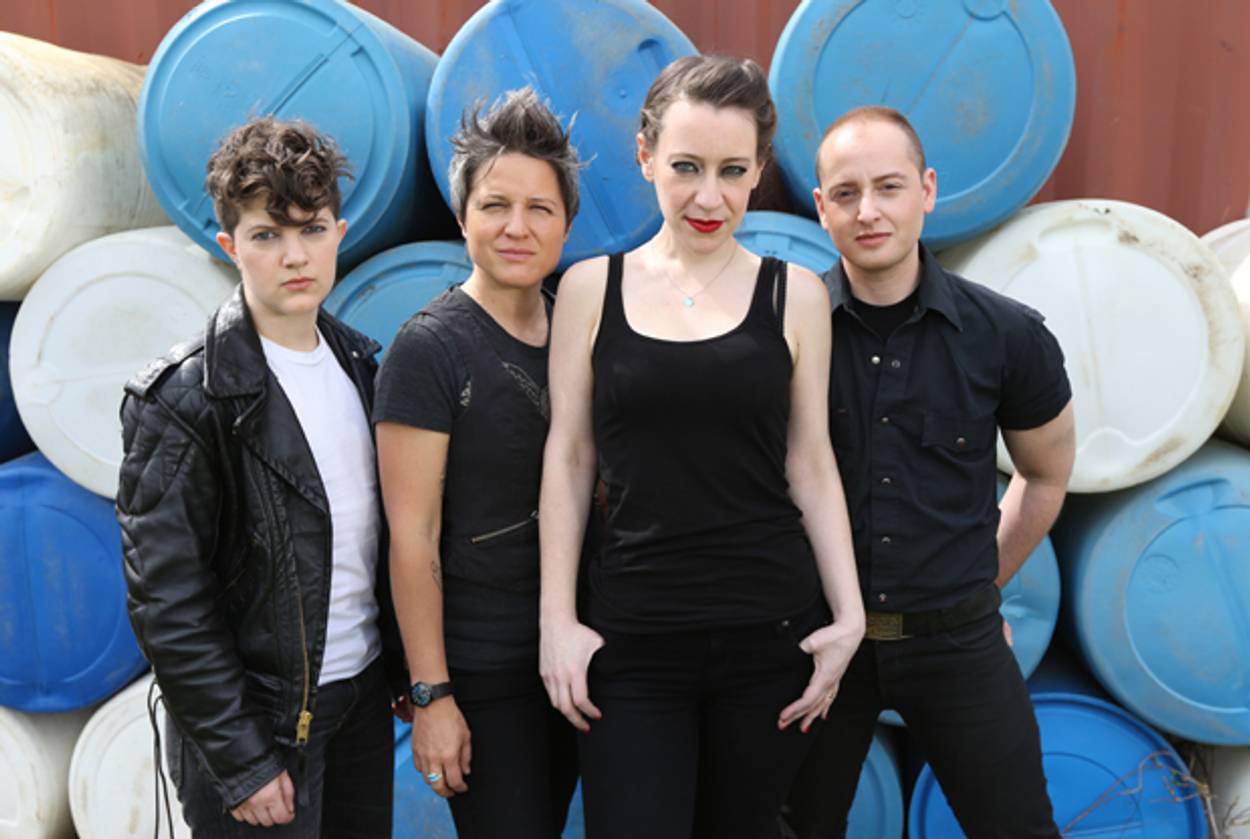The Shondes Keep on Rocking
Radical self-reliance runs through the band’s latest album, The Garden




Even if there was competition for the mantle of best feminist punk band with Jewish influences, The Shondes would be at the top of the heap. But as it stands, they’re pretty much alone. They’ve gotten plenty of comparisons throughout the years, especially to riot grrl bands like Sleater-Kinney and Team Dresch. And a lot of it is understandable—if your band had its origins in protesting the Bush Administration and used lots of loud, angry guitars, it might get thrown into a movement like riot grrl too. The difference is that The Shondes—named for the Yiddish word meaning ‘disgrace’—are still around.
“Who told you to give up, who said you’re never good enough, who told you to give up on the garden?” is how their latest album, The Garden, starts off. Lead singer Louisa Rachel Solomon is accusatory, but not judgmental. She’s got an acrobatic voice, which she mainly uses as part of a rising tide to lift all boats. On the band’s Tumblr, they’ve described The Garden as “Bruce Springsteen-meets-Bikini Kill,” which fits: it’s an album about finding joy in struggle—“Wait! I’m on your side! Punch a hole into the sky, it’s not too late—you have to try,” Solomon sings on “On Your Side.” A song that revolves around distinctly unpunk-power chords, there’s a 1980’s-arena feel to it, which is grounded in Elijah Oberman’s violin.
The Shondes’ violin is its last link to the claim that got thrown around when their first album, The Red Sea, came out: that in addition to being a rock band, they’re also a klezmer revival act. Mess around with your heritage for a few tracks and you’re stuck with the label for life. On The Garden, The Shondes aren’t using the violin to bring back any particular sound, but as a deft counter to Solomon’s voice. When it’s off in space, the violin brings it back to earth, especially on a track like “Follow the Storm.”
Radical self-reliance, which some might might call a particularly Jewish trait, runs through The Garden. The album’s chief oddity, “Dr. Manhattan,” revolves around a character from Watchmen, Alan Moore’s famed graphic novel, who possessed unlimited powers and drifted away from his humanity. “I want to prove that even he wants to be loved,” Solomon sings. While there’s nothing outwardly political on The Garden, tracks like this point towards the need for self-identification in political activism. It’s easy to roll your eyes at ideas like the need to understand yourself before getting involved politically, but with Solomon’s voice the message is crystal-clear.
There’s a feeling of freedom in The Garden, of being able to put hard work aside for a while. Although the album came out in September, they’re having a release party this Sunday at The Rock Shop. It’s titled “WELCOME HOME,” and it’s bound to be one helluva party.
Related: Sukkah of the Soul
David Meir Grossman is a writer living in Brooklyn. His Twitter feed is @davidgross_man.